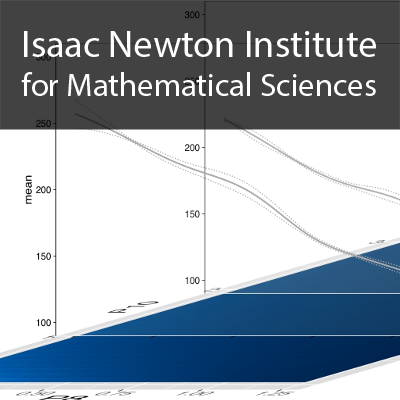Optimal dimension-reduced calibration and the terminal case for spatial models
49 mins 42 secs,
90.92 MB,
MP3
44100 Hz,
249.77 kbits/sec
Share this media item:
Embed this media item:
Embed this media item:
About this item

| Description: |
Williamson, D
Wednesday 7th March 2018 - 11:45 to 12:30 |
|---|
| Created: | 2018-03-07 16:43 |
|---|---|
| Collection: | Uncertainty quantification for complex systems: theory and methodologies |
| Publisher: | Isaac Newton Institute |
| Copyright: | Williamson, D |
| Language: | eng (English) |
| Distribution: |
World
|
| Explicit content: | No |
| Aspect Ratio: | 16:9 |
| Screencast: | No |
| Bumper: | UCS Default |
| Trailer: | UCS Default |
| Abstract: | Since the seminal paper by Kennedy and O’Hagan in 2001, the calibration of computer models using Gaussian process emulators has represented a gold standard for scientists and statisticians working to quantify uncertainty using complex computer codes. When the output of such codes is high dimensional, such as with the spatial fields routinely produced by climate models, the standard approach (attributed to Higdon in 2008) is to take principal components across the model output, and use the loadings on these as a lower dimensional representation of the model output that can be used within the Kennedy and O’Hagan framework. In this talk I will argue that, in general, we should not expect this to work. I will introduce what we term a “terminal case analysis” for general computer model calibration, show the implications for inference of a terminal case analysis and argue that though a high dimensional computer model may not lead to a terminal case analysis, the standard statistical treatment outlined above invariably leads to one artificially. I will then present our solution to this which uses rotation ideas to fix the search directions of our lower dimensional representations so that general calibration of spatio-temporal models is possible. We apply our method to idealised examples and to the output of the state of the art Canadian atmosphere model CanAGCM4. We will see that the problem of calibrating climate models requires a great deal of novel statistical thinking before we, as a community, can claim to have a solution ready for this important application area. This is work done with (and by) Dr James Salter. |
|---|---|
Available Formats
| Format | Quality | Bitrate | Size | |||
|---|---|---|---|---|---|---|
| MPEG-4 Video | 640x360 | 1.93 Mbits/sec | 722.15 MB | View | Download | |
| WebM | 640x360 | 607.8 kbits/sec | 221.10 MB | View | Download | |
| iPod Video | 480x270 | 522.22 kbits/sec | 189.90 MB | View | Download | |
| MP3 * | 44100 Hz | 249.77 kbits/sec | 90.92 MB | Listen | Download | |
| Auto | (Allows browser to choose a format it supports) | |||||

